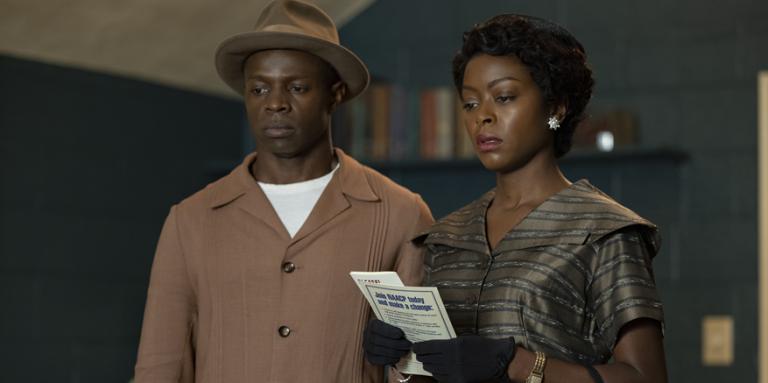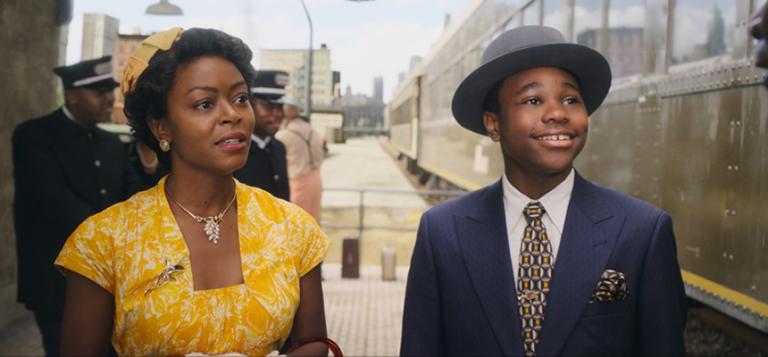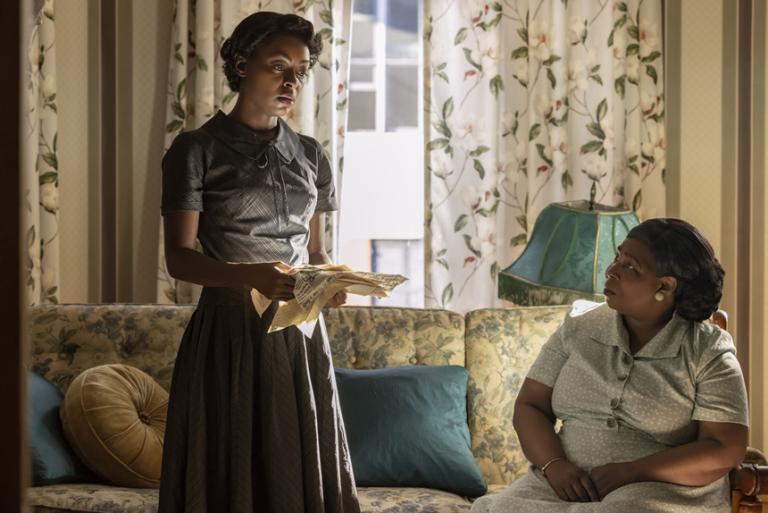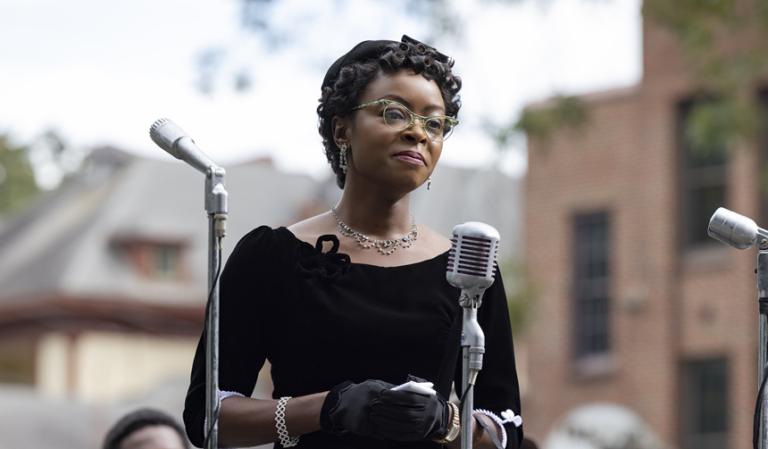
It was a simple prayer. It was offered with sincerity and conviction. Mamie Till just wanted God to protect her son while he’s down in Mississippi. She wanted him to come home.
God is good, her friends assured her. God is merciful. He will protect the boy.
So when her boy—14-year-old Emmett Till—comes back in a box, what is a mother to do? How can she reconcile a good God with her mangled son? How can she go on?
That question of faith is an important one in the movie Till—perhaps the most critical question the movie asks.

Trouble and Tragedy
The PG-13-rated Till centers around the real-world lynching of Emmett Till, who was beaten, tortured and killed for allegedly whistling at a white woman in 1955. The white men accused of the murder (and later confessed) were cleared of all charges.
But this powerful, poignant movie is really Mamie’s story, and it sinks deeply into one of the most perplexing aspects of faith: How does it stand up in the face of tragedy? What happens when it seems your prayers go unanswered?
Mamie, played by the versatile Danielle Deadwyler (whom I hope will get an Oscar nomination for her work here), prays for the safe return of her son. She kneels by her bedside, hands clasped and head bowed. We don’t hear what she’s praying for, of course. But we know.
And her prayers are well warranted. The movie effectively sets up Mamie’s concern over her son’s trip to Mississippi. It’s a different world down there compared to what Emmett’s used to in Chicago. Sure, the city isn’t free of racism. But it’s leagues away from the racism found in the Jim Crow South.
Emmett’s never been to Mississippi, but he’s charmed by the stories his grandmother would tell of her days down there. He’d be able to stay with his cousins and see where his mother was born and raised. And he says he understands that things are different down there.
But Mamie’s not so sure. How could he? How could he truly understand what it’s like to walk the streets of Money, Mississippi? She tries to tell him. “Bo, be small down there,” she says, using the pet name everyone calls Emmett. Emmett says he will. But Mamie knows her boy. She knows the south. And she worries. And prays.
God is good. God is merciful.
And yet, God didn’t save her little boy.

Finding Meaning in the Mess
Many of us know what that’s like—to pray for something and feel as though our prayers were unheard. We pray for the health of loved ones. We pray that maybe our wayward sons or daughters would come to their senses. We pray for important relationships to be repaired. These seem like such reasonable requests: How could an all-knowing, all-powerful God refuse them? Why does He seem to allow such terrible things?
What happens to Emmett Till is a terrible thing indeed. When the body’s recovered (fished out of a nearby river), it’s almost completely unrecognizable—the face a mass of wounds, the body bloated and gray. Only the ring Emmett wore—an heirloom from his father—leads to his identification.
For days, before the body’s returned to Chicago, Mamie’s overwhelmed with grief. As Civil Rights lawyers and activists visit, asking to turn the tragedy into a cause, Mamie can’t deal with them. She’s hurting too much.
All that hurt hits its peak when Emmett’s body arrives by train—and it’s funneled into another, anguished prayer. As Mamie sees the box that holds her boy’s body, Mamie collapses on it. “Lord have mercy!” She wails. “Lord have mercy! Show me what you want me to do!”
Show me what you want me to do. To me, those words—and when Mamie looks at the body itself minutes afterward—form the pivot point on which the whole movie turns.
When Mamie sees the body, she demands to be left alone with it. She runs her fingers over the bloated limbs, over the mangled face. In this moment of unimaginable horror and grief, Mamie finds new strength. She walks out of the room and into the sunlight, determined to have an open-casket funeral. And when someone tells her that the body’s in no shape to be seen, she disagrees.
“He’s in just the right shape,” she says. “The whole world needs to see what they did to my son.”
That open-casket funeral became a huge catalyst in the Civil Rights movement—one that brought the tragedy home to much of America. And it still reverberates today. Just this year, the Emmett Till Antilynching Act was passed by Congress, making lynching a hate crime.

Going On After Grief
Mamie prayed for her boy’s safety. He wound up dead. I can imagine she had some hard questions for God in the aftermath. How could she not?
But grief and tragedy are a part of all of our lives. People of faith are not immune to such things. We never have been. A glance through Acts will document many a murder committed against the very first Christians, and believers back in the day had to wonder why Daniel could survive a night in the lion’s den but Stephen was stoned. God is indeed good. He is indeed merciful. But sometimes, it can be difficult to find mercy in the midst of our hardest moments.
And in the end, we must turn the page, as Mamie did. After we ask why?, we must ask, What next? Once tragedy visits, we have to ask what God wants us to do with it. How to live in the face of it. How to, somehow, bring meaning to it.
At the end of the movie, we see Mamie years later, her faith still unshaken. As she stands on a stage, ready to speak to a group of admirers, she gives “honor to God, the source of my strength.”
I like that. So often we pray to keep tragedy at bay. I don’t think there’s anything wrong with that; not in the least. But to move past that and pray for the strength to face that tragedy? To find a way to take something so bad and turn it into something more meaningful?
Till is more than just a historical biopic about Mamie Till and her murdered son. It’s a story of faith—and how that faith can help redeem even our lives’ worst moments.













